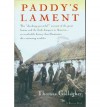Currently reading
Paddy's Lament, Ireland 1846-1847: Prelude to Hatred
Pivot: The Only Move That Matters Is Your Next One
When in French: Love in a Second Language
Beyond the Job Description: How Managers and Employees Can Navigate the True Demands of the Job
Vision and Art: The Biology of Seeing
Achieving Your Potential As A Photographer: A Creative Companion and Workbook
Reclaiming Conversation: The Power of Talk in a Digital Age
Picture Perfect Practice: A Self-Training Guide to Mastering the Challenges of Taking World-Class Photographs (Voices That Matter)
Man's Search for Meaning
Terms of Service: Social Media and the Price of Constant Connection
Still Here: Embracing Aging, Changing, and Dying
 Laura mentioned this book as a way to help understand the fear and slowness that I see in our parents now as they age more. Ram Dass wrote this in 2000 after experiencing a stroke. I only turned down the corner on a couple of pages as reading.In one instance, Ram Dass has arranged to take his father, then almost 90, to the site of their old family farm where his father spent his early years. Ram Dass thought this would be a good trip for his father. Instead he was disappointed at his father's lack of reaction. Then he realized that the whole day had passed too quickly for his father to really take it in. Just before the end of the day, Ram Dass slows down the pace, and then his father comes alive with memories. "This helped me to understand why so many old people feel out of step, unable to connect to a world that is moving so rapidly; why, as so many elderly folks have complained to me, they feel that time has left them behind.. . .Older people often re-experience the time-perspective of childhood - when there wasn't anything pressing to do. .. My old age and childhood are both spacious - of time-spacious. "The more we are helped in this process [of dying:], the better. Just as we employ midwives to help an infant in its birth, we would be wise in this culture to employ individual specially trained to help us die. . . In Tibetan practice, for example, monks and nuns are instructed in ways to guide the dying through their transition. They are trained to deal with the dying person's thirst, coldness, heaviness, and breathlessness, encouraging the one who is dying not to cling to these phenomena."
Laura mentioned this book as a way to help understand the fear and slowness that I see in our parents now as they age more. Ram Dass wrote this in 2000 after experiencing a stroke. I only turned down the corner on a couple of pages as reading.In one instance, Ram Dass has arranged to take his father, then almost 90, to the site of their old family farm where his father spent his early years. Ram Dass thought this would be a good trip for his father. Instead he was disappointed at his father's lack of reaction. Then he realized that the whole day had passed too quickly for his father to really take it in. Just before the end of the day, Ram Dass slows down the pace, and then his father comes alive with memories. "This helped me to understand why so many old people feel out of step, unable to connect to a world that is moving so rapidly; why, as so many elderly folks have complained to me, they feel that time has left them behind.. . .Older people often re-experience the time-perspective of childhood - when there wasn't anything pressing to do. .. My old age and childhood are both spacious - of time-spacious. "The more we are helped in this process [of dying:], the better. Just as we employ midwives to help an infant in its birth, we would be wise in this culture to employ individual specially trained to help us die. . . In Tibetan practice, for example, monks and nuns are instructed in ways to guide the dying through their transition. They are trained to deal with the dying person's thirst, coldness, heaviness, and breathlessness, encouraging the one who is dying not to cling to these phenomena."













